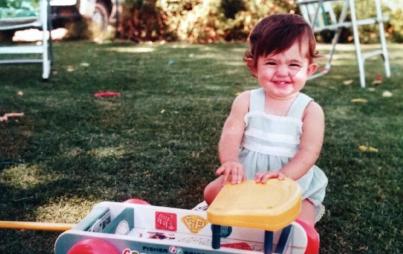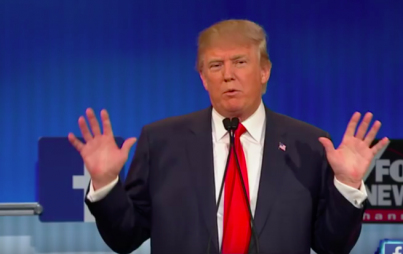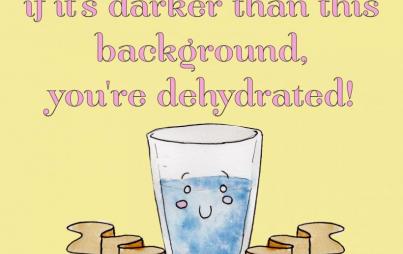
Like many in the delirious throes of love and lust, I frequently call my partner "baby." "Love you, baby," "Morning, baby," "Good night, baby," "How was your day, baby?" Baby, baby, baby. Other than trying not to become one of those annoying humans who use the word obnoxiously often and exclusively in a high-pitched nasal tone ("baaaaabyyyy"), I've never thought much of this.
But then, the other night, I was having a silly conversation with my boyfriend about actual babies, and he said sweetly "You're my baby," and suddenly I realized that the whole baby thing is really damn weird. I mean, how did we start associating our adult lovers with screaming, helpless, hapless infants? And why do we persist in doing so?
"Baby": The Origin Story
The word "baby" is rooted in 14th-century Middle English, and according to the Oxford Dictionary, was probably imitative of an infant's first attempts at speech. The word first became associated with grown-ups around 1600, when people started using it to describe "childish adult people." It wasn't until more than two centuries later—sometime between 1839 and 1901—that it evolved into a term of adult endearment.
Since then, "baby" has become perhaps the most favored expression of affection in American culture, crooned from the silvery lips of everyone from Sonny and Cher ("I got you babe") to Jim Morrison ("Come on baby, light my fire") to Justin Bieber ("Baby, baby, baby, ohh, baby, baby, baby, ohh"). It's been synthesized in new and befuddling ways ("baby cakes") and even adopted into the moniker for a romantic R&B crooner (Babyface).
All of which begs the question: Why? What is it about this word that makes it such a coveted expression of romantic love?
I think the answer is at once sweet and a little sinister. Like many saccharine terms of endearment ("honey" and "sweetie" among them), "baby" is gentle and kind—an expression of our best self loving another. It signifies a desire to care for and protect our partner unconditionally. At the same time, it's a word that's condescending and superior—an expression of our lesser self loving another. It signifies our tendency to view our partners, at times, as infantile, hapless and needing to be tended to.
In short, "baby" is both affectionate and exasperated, exalting and demeaning, tender and rude—a little "I love you sweet baby" and a little "get your fucking act together, baby." It perfectly captures love, in its best and worst manifestations, all at once.
And hey, as a term of endearment, at least it's a little better than the creepily Freudian "daddy" or "papi" and a host of bizarre expressions from abroad, including "little elephant" (Thai), "my flea" (French) and "diving fish swooping geese" (Chinese).
Love is weird. And so are the words that go with it.






